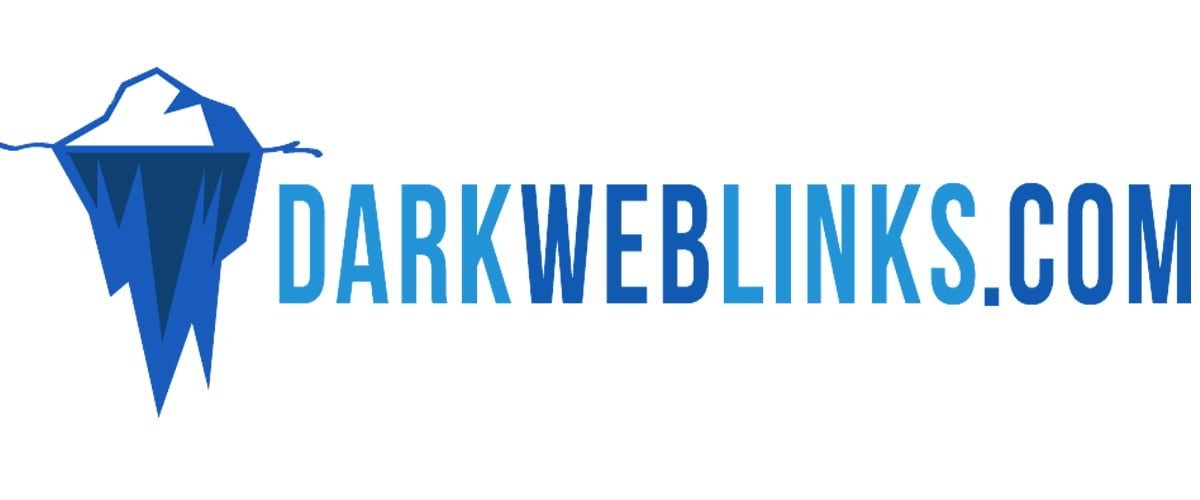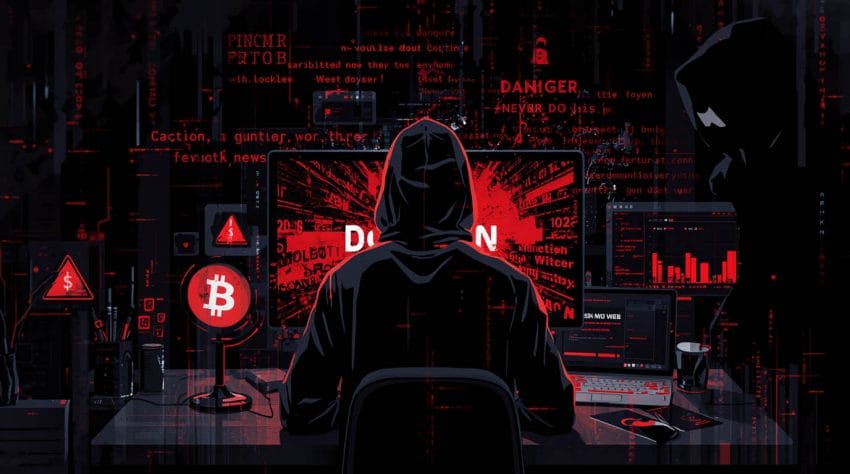🧩 Introduction: The Dark Web Is Evolving — But So Are the Dangers
In 2025, the dark web remains a double-edged sword. On one side, it offers unparalleled anonymity, access to hidden communities, and tools for privacy-conscious users. On the other hand, it’s also a breeding ground for scams, malware, cloned websites, and deceptive marketplaces designed to exploit the unaware.
While the media often paints it as a digital underworld of crime, the truth is more nuanced. The dark web hosts a wide range of content — some dangerous, some harmless, and some genuinely valuable. But just because you can browse anonymously doesn’t mean you’re safe.
Most people who get into trouble on the dark web don’t fall because of elite hackers or global surveillance — they slip up due to simple mistakes. Logging in with a personal account, clicking the wrong link, or trusting the wrong site is often all it takes to compromise your privacy — or worse.
This article is not a scare tactic. It’s a practical guide to help you avoid the most common and dangerous mistakes people make on the dark web. Whether you’re exploring out of curiosity, research, or privacy concerns, knowing what not to do is just as important as knowing where to go.
So, before you open your Tor browser again, here are 10 things you should never do on the dark web in 2025 — and what to do instead.
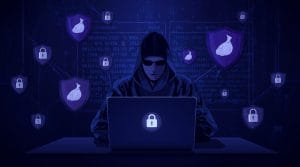
💡 Why Do People Still Visit the Dark Web in 2025?
Despite its dark reputation, the dark web continues to attract millions of visitors in 2025, and not all of them are criminals. The original purpose of the dark web was to protect freedom of speech, privacy, and anonymity in an increasingly monitored online world.
Many users turn to .onion sites for legitimate and legal reasons. Whistleblowers use it to safely leak sensitive information to journalists through platforms like SecureDrop. Human rights activists in authoritarian regimes use Tor to bypass censorship and communicate without surveillance. Academics, researchers, and cybersecurity analysts also explore it to study darknet behavior, malware trends, and threat intelligence.
There are also libraries, uncensored forums, and privacy-focused email providers that operate exclusively within the Tor network, offering a refuge for those who simply want to browse without being tracked, profiled, or manipulated by algorithms.
Even those curious about how the dark web works often land there not to break laws, but to understand the hidden layers of the internet, whether for education, awareness, or digital self-defense.
That said, the dark web is far from safe. With no centralized regulation, it’s also home to countless traps: cloned sites, phishing pages, crypto scams, and malware-infected downloads. That’s why simply having good intentions isn’t enough — you need smart habits to stay protected.
And that begins with knowing what not to do. Here are the top 10 mistakes you must avoid on the dark web in 2025.
❌ #1: Don’t Use Your Real Name or Personal Email
This is the most common — and most dangerous — mistake people make on the dark web.
Never use your real name, personal email, or anything that can be tied back to your identity. Even a small slip can destroy your anonymity. The dark web may be hidden, but it’s not magic. If you reveal who you are, there’s no turning back.
Many sites ask you to register or communicate. Use a burner email created through anonymous services like ProtonMail or Tutanota. Avoid using Gmail, Yahoo, or anything linked to your phone number.
Also, don’t reuse usernames or passwords you’ve used on the surface web. If your real identity ever leaked in a past data breach, hackers can link your account activity.
Here’s a common trap: a “trusted” .onion forum asks for your email to verify your account. You quickly type in your usual one without thinking. Just like that, your identity is exposed — and someone may be watching.
If you want to remain anonymous, treat every interaction as if it’s being logged. Because it just might be.
Use aliases. Use disposable emails. Never mix your real and hidden identities — not even once.
🛡️ #2: Never Access the Dark Web Without a VPN + Tor
Using only the Tor browser is not enough in 2025. You should always combine it with a reliable, no-logs VPN.
Tor hides your activity within its network, but your ISP can still see that you’re using Tor. In some countries, that’s enough to raise suspicion — even if you’re not doing anything illegal. A VPN encrypts your traffic before it enters the Tor network, masking your Tor usage entirely.
The best setup is this: VPN → Tor. This method hides your IP from both your ISP and the Tor entry node.
Here’s what not to do:
Don’t use a free VPN — most are slow, unreliable, or log your data.
Don’t connect to Tor without checking that your VPN is active.
Don’t use a VPN from your workplace or school.
Look for VPNs that accept anonymous payments, don’t log activity, and offer kill switches. This ensures that if your VPN connection drops, your IP won’t leak.
In short, think of your VPN as the first lock on the door. Tor is the second. Without both, your privacy is vulnerable.
🔗 #3: Avoid Clicking Random .Onion Links from Untrusted Sources
The dark web is full of cloned, fake, and malicious sites. Clicking the wrong .onion link can expose you to phishing attacks, scams, or malware infections within seconds.
In 2025, impersonator sites are more convincing than ever. Some mimic popular platforms like the Hidden Wiki or darknet marketplaces so closely that even experienced users get fooled. These fake versions often prompt you to log in, send Bitcoin, or download something — all of which can compromise your security.
One of the biggest risks is relying on unverified sources, like random Reddit comments, link dump forums, or sketchy Telegram groups. These links often circulate without proper moderation or community trust, and attackers use them to lure in victims.
A safer approach is to use verified, recently updated directories — preferably ones run by reliable dark web communities or privacy-focused websites. Bookmarking trusted .onion addresses once you’ve verified them is smarter than trying to re-search them each time.
Remember: there’s no undo button on the dark web. One wrong click could expose your IP, download malware, or drain your crypto wallet. When in doubt, don’t click — especially if the source feels off.
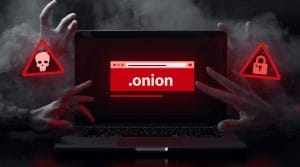
For safer browsing, start with trusted sources like the Top 25 Active .Onion Links rather than gambling with unknown URLs.
💾 #4: Don’t Download Files or Apps from Unknown Onion Sites
Downloading anything from the dark web is a major risk — especially in 2025, when malware is getting more advanced and harder to detect. Many .onion sites advertise free tools, privacy apps, or leaked files that seem useful or tempting. But behind those links, there’s often spyware, keyloggers, or backdoors waiting to infect your device.
Hackers know users on the dark web seek anonymity tools. That’s why fake downloads are disguised as Tor browser updates, encrypted messengers, or even cryptocurrency mixers. You might think you’re installing something to protect your privacy, but you’re giving someone remote access to your system.
Unlike the surface web, there’s no virus scanner pop-up or security warning to help you here. Files shared on unknown .onion domains are rarely vetted, and malicious actors frequently re-upload infected versions of legitimate software.
A safer approach is to only download privacy tools from their official websites — never from a dark web source unless you trust it 100%. For example, if you’re looking for anonymous operating systems, visit tails.net or whonix.org. These are the real sources for Tails and Whonix, two of the most trusted tools in the privacy community.
Also, avoid downloading cracked software or “leaked” documents. These files are often booby-trapped, and opening them could give away your device fingerprint or IP address — even while using Tor.
Remember: just one bad file can silently compromise your entire setup. On the dark web, curiosity doesn’t just kill the cat — it breaches the system.
💳 #5: Never Share Financial Information or Credit Card Numbers
If a dark web site asks for your credit card — close the tab immediately.
Legitimate sites on the dark web operate in cryptocurrency. Any platform asking for debit or credit card details is almost certainly a scam or phishing trap. Once you enter your card number, CVV, or billing address, you’ve handed over your identity and financial info to criminals. And in this space, there’s no customer support to help you get it back.
In 2025, scammers have become more sophisticated. Some sites appear to offer premium memberships or “instant access” to certain content — if you just enter your payment details. Others pretend to be subscription-based email services, fake VPNs, or exclusive forums. Don’t fall for it. These tactics are designed to exploit new users who haven’t done their homework.
You also risk violating your bank’s terms and triggering fraud detection systems. If your financial institution detects charges linked to suspicious domains, they might lock your card, freeze your account, or even flag your name for investigation.
If you plan to make any purchase on the dark web — whether it’s legal or not — use only cryptocurrencies, preferably ones with strong privacy features like Monero (XMR). Bitcoin is still popular, but it’s not fully anonymous, and every transaction is permanently recorded on the blockchain.
Bottom line: your financial identity is the last thing you should ever expose on the dark web. It’s a one-way ticket to fraud, doxxing, or worse.
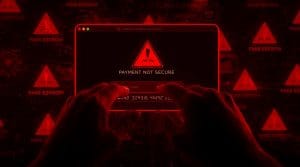
💻 #6: Don’t Use Your Regular Device Without Security Precautions
Using your daily laptop or phone to browse the dark web is a dangerous habit. Most devices are full of tracking scripts, cookies, and apps that constantly ping your location or monitor usage in the background.
If you open the Tor browser on your everyday device without making changes, you’re already at risk. Your real IP could leak, your typing patterns might be tracked, or worse, malware from a previous session could still be running.
In 2025, privacy tools will be more accessible than ever. You don’t need expensive hardware to stay safe — just good habits. Use live-boot operating systems like Tails or hardened setups like Whonix. These systems are designed for anonymous sessions and don’t store data between reboots.
If that’s not an option, at least isolate your dark web activity. Use a separate browser profile, avoid installing plugins, and never multitask personal activities with Tor browsing. Turn off syncing services, close all background apps, and disable location services.
Think of your setup like a clean room — it should be sterile, contained, and free of anything that ties back to your real identity.
Also, always keep your security tools updated. Old software versions have known vulnerabilities, and many attacks on dark web users target those who neglect updates.
Your device is your gateway. If it’s not secured, your anonymity is already compromised before you even open an .onion site.
🎁 #7: Never Trust “Too-Good-to-Be-True” Offers
If a deal on the dark web seems too good to be true, it is.
Scammers know that new users are often curious or desperate for quick results. That’s why you’ll see offers for fake passports, hacked Netflix accounts, miracle weight-loss drugs, or even hitman services at a discount. These are traps designed to get your money, your identity, or both.
In 2025, cloned marketplaces and fake vendor profiles are everywhere. Some of these sites even copy the design and layout of real darknet markets to gain your trust. But once you send cryptocurrency, the seller disappears, and your coins are gone for good.
Avoid sites that promise instant access, unlimited services, or “verified deals” with no buyer feedback. Real darknet markets have escrow systems, reputation scores, and active moderation. Anything lacking those elements is probably a scam.
Also, check out our guide on How to Visit the Top Dark Web Sites in 2025 if you’re unsure how to navigate safely.
When in doubt, remember this rule: No one is handing out deals on the dark web — they’re setting bait.
🔒 #8: Avoid Logging Into Any Surface Web Accounts
Logging into your regular accounts — like Gmail, Facebook, or even Reddit — while using the Tor browser is a critical mistake.
The moment you enter your real credentials, you create a direct link between your anonymous browsing and your real-world identity. That one action can destroy your privacy, no matter how secure the rest of your setup is.
This happens more often than you’d think. Many users browse dark web forums, then absentmindedly check their email or social media in another tab. Even worse, some sites on the dark web will trick you into thinking you’re accessing a legit surface platform — but it’s a phishing clone designed to steal your login.
Once you’re logged into a personal account, you open the door to tracking, fingerprinting, and deanonymization. Your location, habits, and contact list become vulnerable, and you may not even realize it until it’s too late.
If you must communicate while using Tor, use anonymous accounts. Never reuse usernames, passwords, or recovery emails tied to your identity. Services like ProtonMail or Tutanota are better options — but only when used carefully.
On the dark web, anonymity is not just about hiding — it’s about not slipping.
🚨 #9: Don’t Engage in Illegal Activity Just Because It Feels Anonymous
Many users feel a false sense of security on the dark web. After all, if you’re using Tor and a VPN, who can see you? But anonymity doesn’t equal immunity.
In 2025, global law enforcement agencies will become more aggressive in tracking illegal activity on the dark web. Operations like Onymous and Disruptor have taken down entire marketplaces, arrested vendors, and even unmasked casual buyers.
The myth that “you can do anything on the dark web” is just that — a myth. Whether it’s buying stolen data, accessing illegal pornography, or dealing in counterfeit currency, you’re not invisible. Undercover agents run sting sites. Exit nodes can be monitored. Mistakes can happen.
Even something as simple as asking the wrong question in a forum could put you on a watchlist.
If you’re exploring out of curiosity or for research, there are legal and safer areas of the dark web worth visiting. Anonymity is meant to protect your rights, not to encourage reckless behavior. Don’t mistake encryption for permission.

🕵️ #10: Never Assume You’re Completely Anonymous
This is perhaps the most important lesson of all: you are never fully anonymous online — not even on the dark web.
While Tor, VPNs, and privacy tools can hide your identity to a great extent, they aren’t foolproof. One small mistake — like logging into a personal account, reusing a password, or typing something that reveals your writing style — can be enough to trace your activity back to you.
In 2025, digital fingerprinting has become more advanced. Everything from screen resolution to keyboard layout and browser behavior can be used to identify you. Even if your IP is hidden, your device may still leak information through scripts or exploits.
Don’t trust shady websites that claim to “make you invisible.” No tool guarantees complete protection — and any platform that says otherwise is misleading you.
For a deeper understanding of how tracking works even under anonymity, you can read this explainer from the Electronic Frontier Foundation (EFF). It breaks down how browser fingerprinting can quietly follow you across the web, even without cookies.
Anonymity is not something you download. It’s something you maintain — through discipline, awareness, and zero assumptions.
✅ Safer Alternatives: What You Can Do on the Dark Web Without Taking Risks
Not everything on the dark web is illegal or dangerous. There are plenty of sites and services designed to support privacy, freedom of speech, and open access to information, without exposing you to scams or malware.
One of the safest things you can do is read and learn. There are forums, blogs, and digital libraries that share valuable content about cybersecurity, surveillance, encryption, and online privacy. These sites rarely ask for personal information and often operate in a read-only format, meaning you can browse without interacting.
You can also explore privacy-focused tools and services, such as encrypted email providers or anonymous pastebin platforms. These tools are helpful for whistleblowers, journalists, and anyone looking to communicate without fear of tracking or censorship.
Some .onion sites offer mirrors of popular surface websites, like ProPublica or BBC, which operate on the dark web to bypass censorship in restricted countries. These are trustworthy sources of news and analysis, available through the Tor network without ads or trackers.
If you want a starting point, search for informational hubs or community-run directories that are known for vetting links. Always check the domain carefully, and avoid anything that pushes downloads or payments upfront.
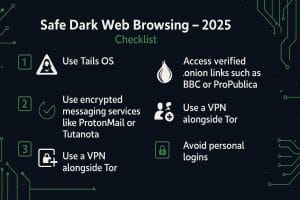
The dark web doesn’t have to be a trap — it can be a tool. It all depends on how you use it.
Explore with caution, stay within legal boundaries, and focus on learning rather than engaging.
